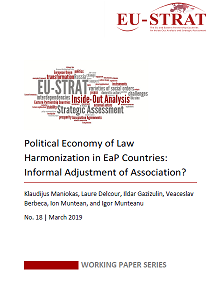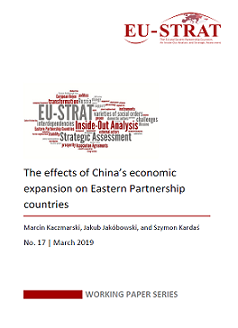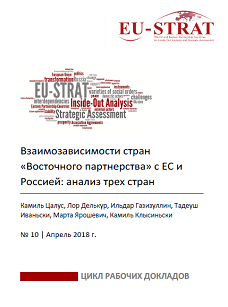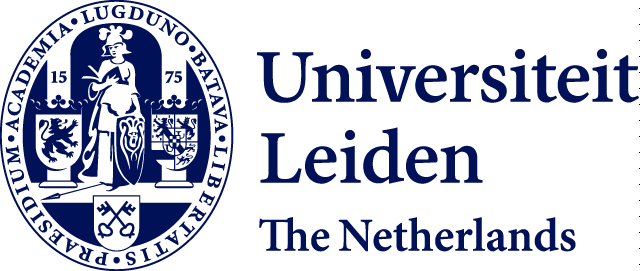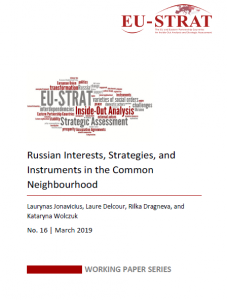Рабочий доклад / Апрель 2018
Рабочий доклад EU-STRAT № 10 посвящен взаимозависимости стран «Восточного партнерства» с ЕС и Россией с сегодняшнего дня доступен на нашом сайте тоже на русском языке. Нажмите название доклада ниже, чтобы загрузить PDF.
Рабочий доклад EU-STRAT № 10 (2018): Взаимозависимости стран «Восточного партнерства» с ЕС и Россией: анализ трех стран
Авторы:Камиль Цалус, Лор Делькур, Ильдар Газизуллин, Тадеуш Иваньски, Марта Ярошевич, Камиль Клысиньски
Резюме:
В качестве ключевого фактора, влияющего на характер внутренних изменений в ответ на политику ЕС в странах «Восточного партнерства» (ВП), определены асимметричные взаимозависимости стран в отношениях с Россией. Утверждается, что взаимозависимость может как способствовать осуществлению изменений, которых требует ЕС, так и тормозить их, в зависимости от того, затрагивают ли данные изменения сферы, чувствительные или уязвимые для стран ВП в отношении политики России.
В исследовании предлагается систематический обзор и хронологически изучается развитие взаимозависимостей в трех странах ВП (Беларуси, Молдове и Украине) и в четырех особенно важных секторах (торговле, миграции, энергетике и безопасности). Далее проводится анализ использования Россией взаимозависимостей и попыток увязывания между собой различных, не связанных друг с другом вопросов, относящихся к вышеперечисленным секторам. Помимо этого, рассматривается реакция национальных элит стран на стратегию, применяемую Россией. Исходя из разделения между понятиями «чувствительность» и «уязвимость», особое внимание в работе уделяется определению условий, при которых политика стимулирования или отталкивания правящих кругов в странах ВП от тех или иных решений или шагов, благоприятных для России или ЕС, приводит к успехам. По результатам анализа установлено, что попытки России (неравные в отношении различных стран и отраслей) увязывать друг с другом различные проблемные вопросы смогли на практике воспрепятствовать дальнейшей интеграции с ЕС в тех случаях, когда политические альтернативы были слишком дорогостоящими для властных кругов в странах ВП. И наоборот, применение Россией «связок» между различными направлениями политики способствовало интеграции с ЕС в случаях, когда со стороны последнего странам ВП была предложена доступная по цене альтернатива.


